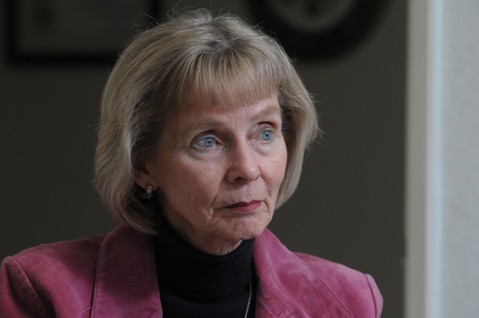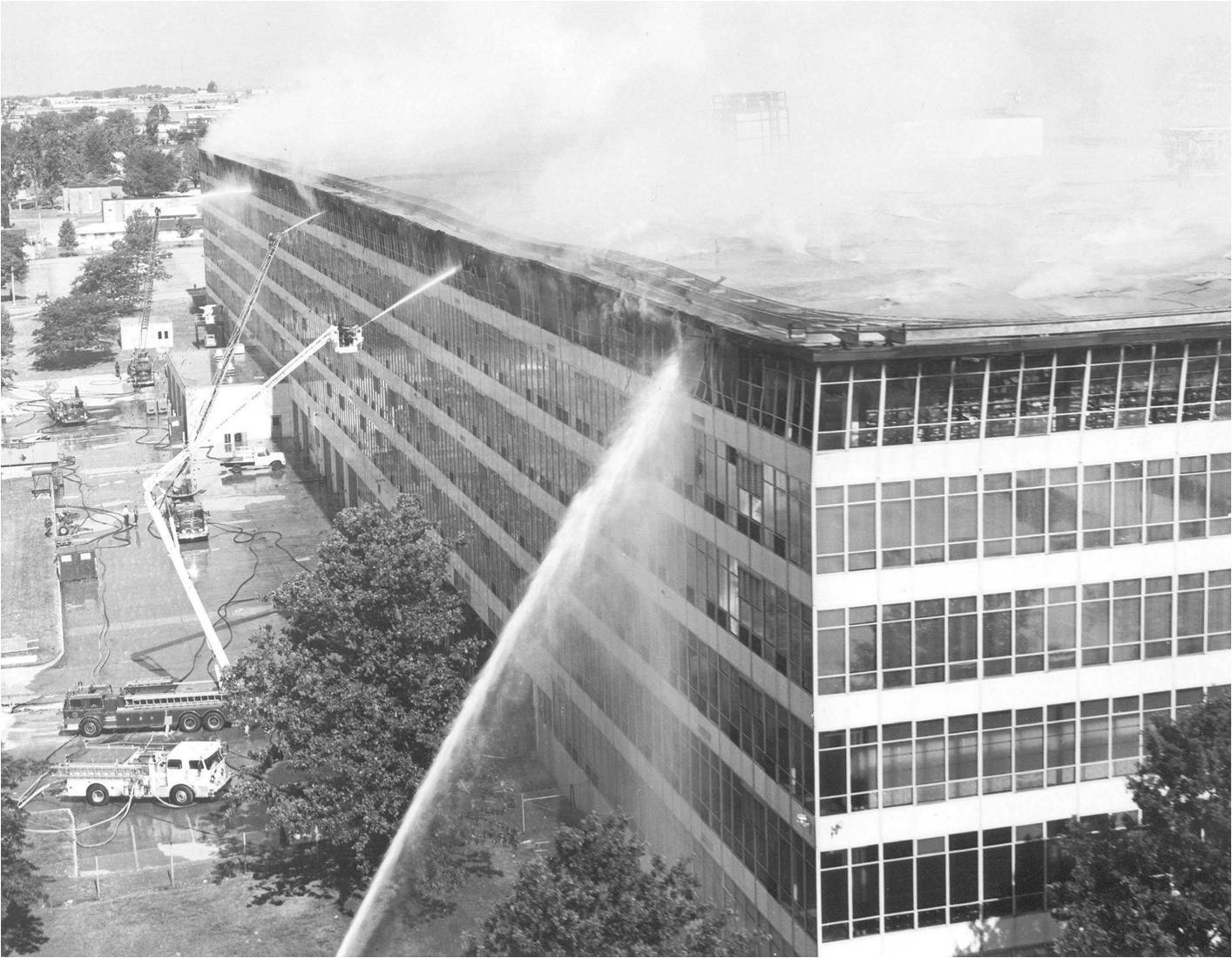Capps Introduces Bill to Help War Veterans Without Records
1973 Fire Destroyed 16-18 Million Military Files; Vets Have Suffered Lost Benefits Since

Joseph Mastagni ran a bulldozer for the U.S. Army during the last years of World War II, clearing ice off Japanese airstrips for American planes. After toiling through countless nights on the airfield and surviving to the war’s bitter end, he was discharged in 1946 and eventually settled in Buellton, where he worked and raised a family. Six decades later and suffering from Alzheimer’s, Mastagni applied for the first time for health-care benefits through the Department of Veterans Affairs, but — like so many other retired servicemen — quickly became lost in a nightmarish tangle of lost records, red tape, and cold bureaucracy.
The biggest hurdle keeping Mastagni from getting medical care was his unrecoverable file of official Army paperwork, destroyed alongside 16-18 million other military records during a devastating fire at the National Personnel Records Center in St. Louis in 1973. No duplicate files or microfilm reels had been made. While his family pieced together as much evidence of Mastagni’s service record as they could and submitted it to Veterans Affairs (VA) officials, it wasn’t enough. They needed his discharge papers, VA case workers said. Those had been burned in the fire, Mastagni’s family explained, but it was no use.
As they considered selling his home to pay for his care, members of Mastagni’s family reached out to Representative Lois Capps’s office for help. Using a WWII-era photo of Mastagni standing in front of an Army jeep, and zooming in on the jeep’s license plate to pinpoint where and when it was used, Capps’s staff was able to convince the necessary people at the VA that Mastagni was indeed eligible for medical benefits and start the ball rolling on his admission into a health-care program. But before the process was complete, Mastagni suffered a fall and passed away soon after. He was 98.

“People have no avenues and don’t know which way to turn,” said Mastagni’s daughter-in-law Dorothy of the difficulties that often greet veterans when they apply for benefits. “A lot of these guys lost their records in their fire, and it makes things really hard.” Dorothy thanked Capps and her staff for helping Mastagni as much as they possibly could. “I would give Lois Capps and her people a rating of A+ for their effort,” she said.
Last Wednesday, Capps — who represents more than 50,000 veterans in her 24th District — introduced a bill called the Veterans’ Record Reconstruction Act that would streamline the process by which servicemen and servicewomen prove their eligibility for benefits or decorations. While unofficial sources of information like photographs, letters, and eyewitness accounts have been used on a case-by-case basis to help reconstruct veterans’ files destroyed in the fire, explained Capps spokesperson Chris Meagher, there are no actual guidelines to follow. The bill, Meagher said, would require the Department of Defense to work with the Department of Veterans Affairs and come up with rules and criteria for considering these unofficial sources and, in more general terms, make the whole process easier.
“It is unacceptable that — three decades later — this tragic fire is still making it difficult for veterans to receive the benefits and recognition they deserve,” Capps said in a prepared statement. “The debt we owe to our nation’s veterans is immeasurable, and we need to create a clear pathway to reconstructing their military service records to ensure we are doing all we can to get them the benefits and recognition they have earned.”
“I have worked with numerous people who have been denied benefits as a result of their records being destroyed in the fire,” Bob Handy, the National Chair of Veterans United for Truth, said in the same statement. “Rep. Capps is to be commended for taking the steps to right this wrong and provide our veterans with the recognition they deserve.”
Coleman Lucas, a WWII and Korean War veteran who lives in Santa Maria, testified to the satisfaction he felt upon receiving his Certificate of Military Service. While he had all his paperwork from his WWII days, Lucas’s discharge papers from the two years he fought the Korean War were lost in the archive fire. And though he wasn’t applying for medical benefits and didn’t give much thought to the medals he earned but never received, Lucas said he wanted the official recognition from the Army that he was on active duty overseas from 1950-1952.
Getting nowhere with Army record keepers, Lucas also eventually turned to Capps, whose staff was able to secure the right paperwork, using in part a letter Lucas received from his commanding general. “Hey!” Lucas remembered thinking when he heard the news. “At last. Now I have it.” If the bill becomes law, said Meagher, veterans like Lucas and Mastagni will have a much simpler time obtaining their due recognition, benefits, and medals, avoiding the tedious back and forth with multiple offices and heading straight to the DOD and VA with their applications.



